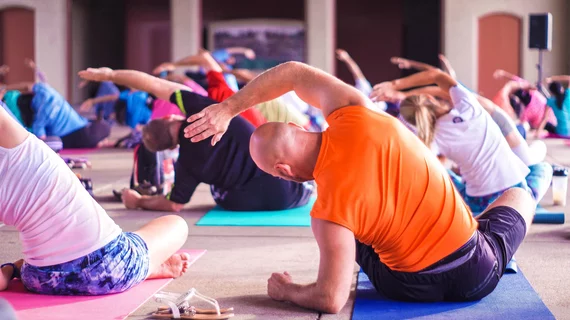Why AFib patients should exercise regularly
Exercise can help patients with atrial fibrillation (AFib) maintain a normal heart rhythm and lower the prevalence of serious symptoms, according to new research presented at the ESC Congress 2021.
Researchers examined data from the ACTIVE-AF trial, which evaluated the impact of a six-month exercise program on AFib recurrence and symptom severity. The program included supervised and home-based aerobic exercise. Forty-three percent of the study's 120 participants were women, and the mean participant age was 65 years old. A control group was given advice on how and when to exercise, but there was "no active instruction."
At 12 months, the AFib recurrence rate was substantially lower in the exercise group (60%) compared to the control group (80%). Recurrent AFib was defined as episodes that lasted longer than 30 seconds and either required an ablation intervention or ongoing anti-arrhythmic drug therapy.
“Put simply, this means a larger number of patients in the exercise group could maintain a normal heart rhythm without needing invasive interventions or the continued use of drugs,” Adrian Elliott, MD, of the University of Adelaide in Australia, said in a press release.
Patients in the exercise group also saw a reduction in the severity of their symptoms at 12 months compared to the control group.
“This means that patients reported less severe palpitations, shortness of breath and fatigue,” Elliott said.
Elliott also noted that this study demonstrates the value aerobic exercise can offer patients with symptomatic AFib.
“This should sit alongside the use of medications, as guided by a cardiologist, and management of obesity, hypertension and sleep apnea," he said. "As a general guide, patients should strive to build up to 3.5 hours per week of aerobic exercise and incorporate some higher intensity activities to improve cardiorespiratory fitness."
More information related to ESC Congress 2021, a virtual conference hosted by the European Society of Cardiology, is available here.
